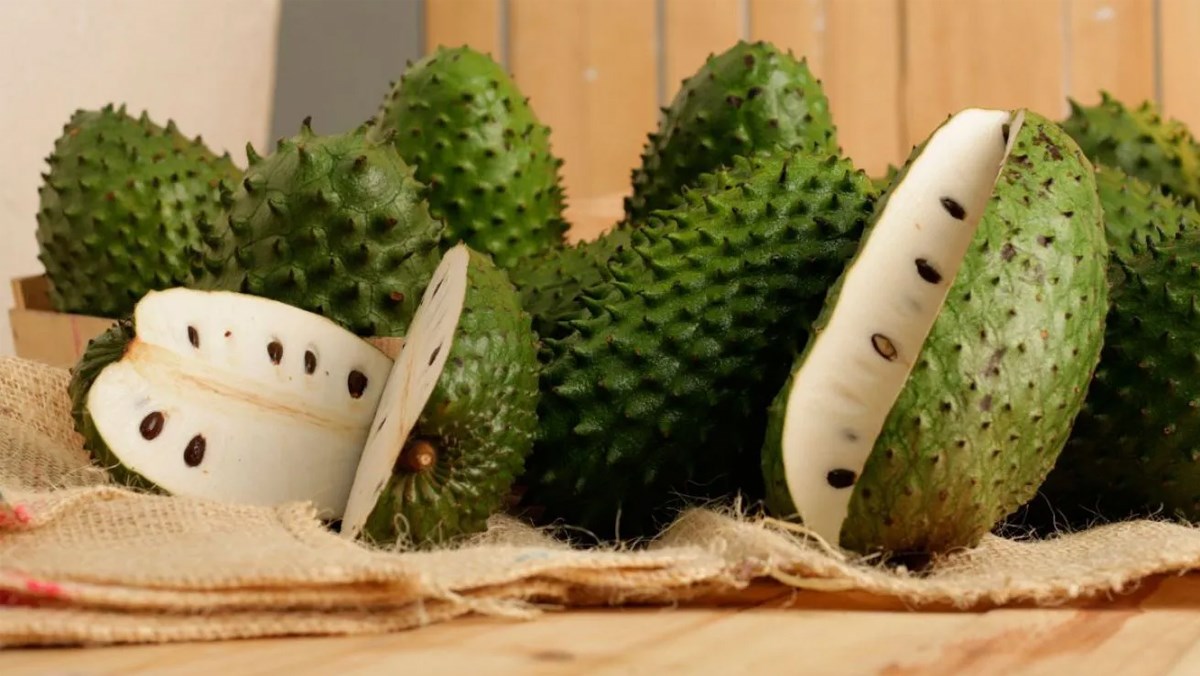Истакнути
- Преузми линк
- X
- Имејл адреса
- Друге апликације
Does Soursop Fruit '10,000 Times More Effective Than Chemotherapy'? Separating Fact from Fiction

Soursop, also known as Graviola, Guanabana, or Annona muricata, is a tropical fruit renowned for its unique flavor and potential health benefits. Recently, claims have surfaced suggesting that soursop is "10,000 times more effective than chemotherapy" in fighting cancer. This bold statement has sparked considerable interest and controversy. In this blog post, we will explore the validity of these claims, examine the scientific evidence, and provide a clear understanding of soursop's role in cancer treatment.
Understanding Soursop
Soursop is a fruit native to tropical regions of the Americas. It is rich in vitamins, minerals, and antioxidants, and has been traditionally used in various cultures for its purported health benefits. The fruit, leaves, seeds, and bark of the soursop tree are used in natural remedies for ailments ranging from infections to digestive issues.
The Claim: Soursop vs. Chemotherapy
The claim that soursop is "10,000 times more effective than chemotherapy" primarily stems from studies examining the fruit's active compounds, particularly acetogenins. These studies suggest that acetogenins have potent anticancer properties. However, it is crucial to delve deeper into the research to understand the context and validity of these claims.
Scientific Evidence
1. Laboratory Studies
Several in vitro (test tube) and in vivo (animal) studies have investigated the anticancer effects of soursop:
In Vitro Studies: Some laboratory studies have shown that soursop extracts can kill certain types of cancer cells, including breast, liver, prostate, and pancreatic cancer cells. These effects are attributed to the acetogenins found in soursop, which may inhibit the growth of cancer cells by targeting their energy production.
In Vivo Studies: Animal studies have also demonstrated that soursop extracts can reduce tumor size and slow the growth of cancer cells in mice. These findings suggest that soursop has potential as a natural anticancer agent.
2. Human Studies
While laboratory and animal studies are promising, there is a significant gap in human clinical trials. To date, there are no large-scale, peer-reviewed studies in humans that confirm soursop's efficacy and safety as a cancer treatment. The lack of human trials means that we cannot conclusively determine whether soursop is effective in treating cancer in humans, let alone compare it to chemotherapy.
Chemotherapy: The Standard Cancer Treatment
Chemotherapy is a well-established, rigorously tested cancer treatment used to kill or slow the growth of cancer cells. It is backed by extensive clinical research and is administered under strict medical supervision. While chemotherapy has side effects and is not always effective, it remains a cornerstone of cancer treatment due to its proven efficacy in many cases.
Risks and Considerations
1. Unproven Claims
The claim that soursop is "10,000 times more effective than chemotherapy" is not supported by scientific evidence. Such statements can be misleading and may give false hope to cancer patients seeking alternative treatments.
2. Potential Side Effects
Soursop, especially in large quantities, can have side effects. Some studies have suggested that compounds in soursop might cause nerve damage and movement disorders, similar to Parkinson's disease, when consumed in large amounts.
3. Interaction with Conventional Treatments
Natural supplements, including soursop, can interact with conventional cancer treatments. It is essential for patients to consult with their healthcare providers before incorporating soursop or any other supplements into their treatment regimen.
Conclusion
While soursop has shown potential anticancer properties in laboratory and animal studies, the claim that it is "10,000 times more effective than chemotherapy" is not substantiated by scientific evidence. The current research does not support the use of soursop as a standalone treatment for cancer, and more human clinical trials are needed to determine its safety and efficacy.
Cancer patients should rely on evidence-based treatments and consult their healthcare providers before considering alternative therapies. Soursop may have health benefits and could be a valuable addition to a balanced diet, but it should not replace conventional cancer treatments.
- Преузми линк
- X
- Имејл адреса
- Друге апликације
Популарни постови
7 Health Benefits of Papaya: A Nutritional Powerhouse
- Преузми линк
- X
- Имејл адреса
- Друге апликације
How to boost the hormone of happiness with diet?
- Преузми линк
- X
- Имејл адреса
- Друге апликације
Коментари
Постави коментар